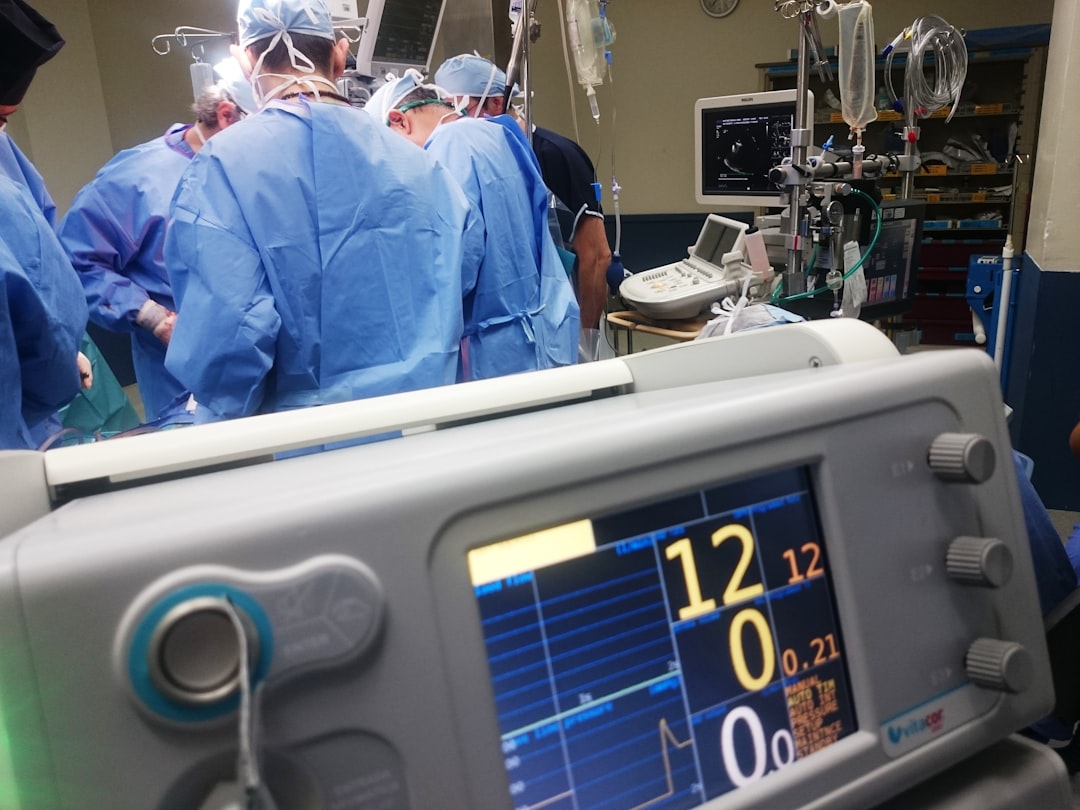

If you or a loved one has experienced medical malpractice, you may be considering a lawsuit to seek justice and compensation. The process can be complex and daunting, but understanding the basic steps involved can help you navigate it with confidence. In this article, we will outline the key phases of the medical malpractice lawsuit process, from filing a claim to settling or going to trial.
The first step in pursuing a medical malpractice lawsuit is filing a claim. This typically involves consulting with a qualified attorney who specializes in medical malpractice cases. Your attorney will review your case and determine whether there are sufficient grounds to proceed with a lawsuit. If so, they will help you gather the necessary documentation, such as medical records and expert opinions, to support your claim. Once all the paperwork is in order, your attorney will file a formal complaint with the court, initiating the legal process.
After the claim has been filed, the defendant – usually the healthcare provider or institution accused of malpractice – will have an opportunity to respond. This stage may involve negotiations between the parties to explore the possibility of reaching a settlement before the case goes to trial. If a settlement cannot be reached, the lawsuit will move into the discovery phase, during which both sides exchange relevant evidence and information in preparation for trial.
When it comes to medical malpractice, having a clear understanding of what it entails is crucial. Medical malpractice occurs when a healthcare professional fails to provide the standard level of care that results in harm, injury, or even death to a patient. However, it's important to note that not all medical errors are considered malpractice. In order to prove malpractice, it must be shown that the provider breached the standard of care, causing harm to the patient. This breach can occur in various ways, including misdiagnosis, surgical errors, medication mistakes, and more.
Patients who believe they have been a victim of medical malpractice need to understand the legal process and the criteria that must be met to pursue a case. It's essential to consult with a qualified medical malpractice attorney to assess the specifics of your situation before taking any legal action.
In order to establish a successful medical malpractice case, it's necessary to show that the healthcare provider deviated from the standard of care that resulted in injury. This requires obtaining medical records, expert testimonies, and a comprehensive understanding of medical practices and procedures. Understanding the complexity of these legal proceedings is crucial for anyone pursuing a medical malpractice claim.
When you or a loved one falls victim to medical malpractice, it is an experience fraught with emotional and legal complexity.. Navigating the labyrinthine corridors of hospitals and courtrooms can be overwhelming and isolating.

Posted by on 2024-09-18
Choosing the best medical malpractice lawyer is a crucial step in ensuring that you receive fair representation and justice in your case.. Among the various factors to consider, one often-overlooked aspect is verifying professional memberships and awards.

Posted by on 2024-09-18
When facing the daunting task of pursuing a medical malpractice case, finding a top-notch attorney becomes crucial.. The initial consultation is your golden opportunity to gauge whether an attorney has the expertise and dedication required to handle such a complex matter.

Posted by on 2024-09-18
Failure to Treat or Inadequate Treatment: A Common Type of Medical Malpractice The relationship between a patient and a healthcare provider is built on trust, with the expectation that medical professionals will use their knowledge and skills to provide the best possible care.. However, when this trust is breached through failure to treat or inadequate treatment, it can lead to severe consequences for patients.

Posted by on 2024-09-18
Becoming a medical malpractice lawyer is a journey that not only demands rigorous academic and professional preparation but also requires an unwavering commitment to ethical considerations and client advocacy.. These two components are integral to the practice of law in this specialized field, where the stakes are exceptionally high for both plaintiffs and defendants. First and foremost, the path to becoming a medical malpractice lawyer begins with obtaining a bachelor's degree followed by a Juris Doctor (JD) from an accredited law school.

Posted by on 2024-09-18
When it comes to determining compensation for medical malpractice, several factors come into play. These factors include the severity of the injury, the impact on the victim's quality of life, lost wages, medical expenses, and more. Compensation can also cover pain and suffering, emotional distress, and punitive damages in certain cases.
The extent of negligence on the part of the healthcare provider also plays a significant role in determining compensation. If it can be proven that the provider acted with gross negligence or recklessness, punitive damages may be awarded to the victim. These damages are intended to punish the defendant and deter similar conduct in the future.
Another important factor in determining compensation for medical malpractice is the state's laws and regulations regarding malpractice claims. Each state has its own laws dictating the maximum amount of compensation that can be awarded in these cases. Understanding these laws is essential for both the victim and their legal representation when pursuing a malpractice claim.


When it comes to seeking legal representation for a medical malpractice case, one of the primary concerns for individuals is the cost involved. Understanding the breakdown of attorney fees, the factors affecting the overall cost, and the options available for financial assistance can help alleviate some of the stress that comes with pursuing a medical malpractice claim. In this article, we will delve into these important aspects to give you a clear picture of what to expect when hiring a medical malpractice attorney.
Medical malpractice attorney costs typically involve a combination of hourly rates, flat fees, and contingency fees. Hourly rates are charged for the time the attorney and their team spend working on the case, while flat fees are a set amount for specific services, such as drafting legal documents or representation at a certain stage of the legal process. Contingency fees, on the other hand, are based on a percentage of the compensation awarded if the case is successful. It’s important to discuss these fee structures with potential attorneys to gain clarity on how they will be applied to your case.
Additionally, there may be additional costs, such as court filing fees, expert witness fees, and other expenses related to gathering evidence for the case. While these expenses are separate from attorney fees, it’s essential to factor them into the overall cost of pursuing a medical malpractice claim.
Understanding these fee structures and potential additional costs can help individuals make informed decisions when selecting a medical malpractice attorney. Being transparent about pricing and potential expenses is a hallmark of a reputable attorney, so it's vital to seek out legal representation that prioritizes clear and open communication about costs.
Medical malpractice occurs when a healthcare professional deviates from the standard of care, leading to harm or injury to a patient. This deviation can take various forms, including misdiagnosis, surgical errors, medication mistakes, birth injuries, and more. It's important to note that not all medical errors constitute malpractice; there must be a breach of the standard of care that directly results in harm. Understanding the intricacies of medical malpractice is crucial when seeking legal recourse, as it helps in evaluating the validity of a potential case.
When considering whether an incident qualifies as medical malpractice, it's essential to consult with medical experts and legal professionals who specialize in this area. They can assess the details of the case, review medical records, and determine if there is sufficient evidence to pursue a claim. Building a strong case for medical malpractice requires a comprehensive understanding of the medical field, legal expertise, and a commitment to advocating for the rights of the affected individual.
Individuals impacted by medical malpractice often face physical, emotional, and financial challenges. Seeking justice through legal means can provide a sense of closure and the financial resources needed to address medical expenses, ongoing care, and other hardships resulting from the malpractice. Choosing the right medical malpractice lawyer is a critical step in this journey.


When evaluating potential medical malpractice lawyers, several key factors should inform the decision-making process. Experience in handling medical malpractice cases, a strong record of obtaining fair settlements or verdicts for clients, and a dedication to transparent communication and client advocacy are among the crucial qualities to seek. Lawyers who prioritize personalized attention and maintain a commitment to keeping clients informed throughout the legal proceedings can significantly contribute to a positive client experience.
Furthermore, the ability of a lawyer to effectively collaborate with medical experts and build a compelling case based on thorough research and evidence is paramount. A robust understanding of medical terminology, procedures, and standards of care is essential for constructing a persuasive argument in support of the client's claim. Additionally, a lawyer's willingness to engage in negotiation or litigation, depending on the specifics of the case, can signal their readiness to navigate the complexities of medical malpractice litigation.
Ultimately, the chosen medical malpractice lawyer should instill confidence and reassurance in their clients, demonstrating a commitment to vigorously pursuing justice and securing rightful compensation for the harm endured. By enlisting the support of a skilled and dedicated legal professional, individuals affected by medical malpractice can strive to achieve a sense of closure and redress in the aftermath of their challenging experiences.
Medical malpractice occurs when a healthcare provider deviates from the standard of care, resulting in harm to the patient. Examples include misdiagnosis, surgical errors, improper treatment, or failure to diagnose.
Look for attorneys with specific experience in medical malpractice cases, strong client reviews, successful case outcomes, and a willingness to provide a free consultation.
The process involves gathering medical records, consulting with legal and medical experts to establish negligence, filing a complaint within Oregons statute of limitations (usually 2 years), and potentially proceeding through settlement negotiations or court trials.